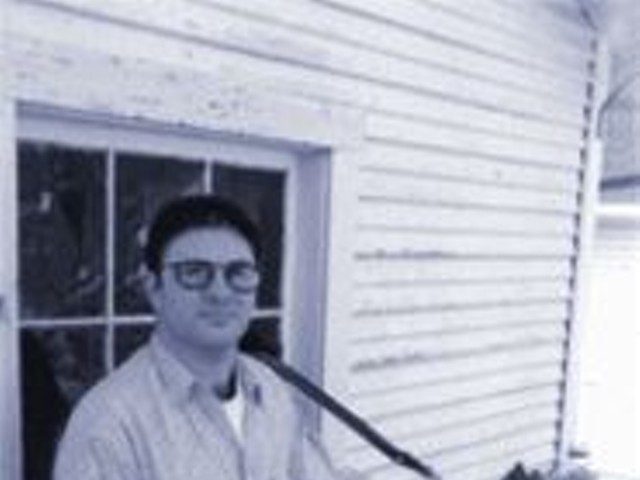What's left for Merle Haggard? It's been 40 years since he was paroled from San Quentin, where he did just shy of three years for a botched burglary, 40 years since he first made a go at a genre he would -- in his songs, voice and life story -- come to own. His first single, released in 1962, was on the mark: "Singing My Heart Out" and "Skid Row." The titles forecast a double-sided art. If Haggard has chronicled working-class life at its most itinerant and dire, he renewed every desperation through the dignity of his deep, supple, and emotionally open voice. In songs like "Branded Man," "Kern River," "Mama Tried," "Tulare Dust," "If We Make It Through December" and "Sing Me Back Home," Haggard finds that elusive, timeless place, the one where the soul of man never dies. Haggard has also, though it's often forgotten, made some of country music's most majestic records: "Caroline," with its high-cresting chorus, as thrilling as any Phil Spector score; "What Have You Got Planned Tonight Diana," with a glowering, terminal recitation and those barely perceptible layers of guitar, backing vocals and violins; and "Footlights," with its electric piano echoing Bill Withers' "Lean On Me," and lyrics that say all you need to know about the man because the man said it himself: I live the kind of life most men only dream of/I make my livin' writing songs and singin' them/But I'm 41 years old and I've got no place to go /when it's over/But I'll hide my age and make the stage/and try to kick the footlights out again." After Hank Williams, country music has never known a singer/songwriter of such talent, charisma and virtuosity. Haggard is the one.
Not that his work in the last 10 years supplies much evidence. 1994 and 1996 were fair records, but they only barely approached anything like mastery (his cover of Iris DeMent's "No Time to Cry" being a notable exception). Last year Haggard released For the Record: 43 Legendary Hits, a double-disc revision of his classic material, so ill-conceived that Hag not only duets with Jewel but rerecords "Okie from Muskogee," as if the joke weren't bad enough the first time. One wondered whether he'd ever make music that mattered again.
Hitting the stores this week, If I Could Only Fly resolves the matter. It's a modest, deceptively brilliant work. Signed to the Anti division of skate-punk imprint Epitaph, Haggard plays to his strengths: rowdy honky-tonk, stripped-down narratives, a bit of Western swing and, finally, what has always been his supreme gift: laying out his life in plainspoken, God-given words. "I knew some day you'd find out about San Quentin," he sings to his daughters and son. "And your heart would break/And your faith would go away." On the title track he pleads from dark, unspeakable hours: "If I could only fly/I'd bid this place goodbye/To come and be with you/But I can hardly stand/And I got no place to run." You'll hear some good songs on country radio today; you won't hear anything this naked, this savagely self-truthful. Haggard is still the one.





